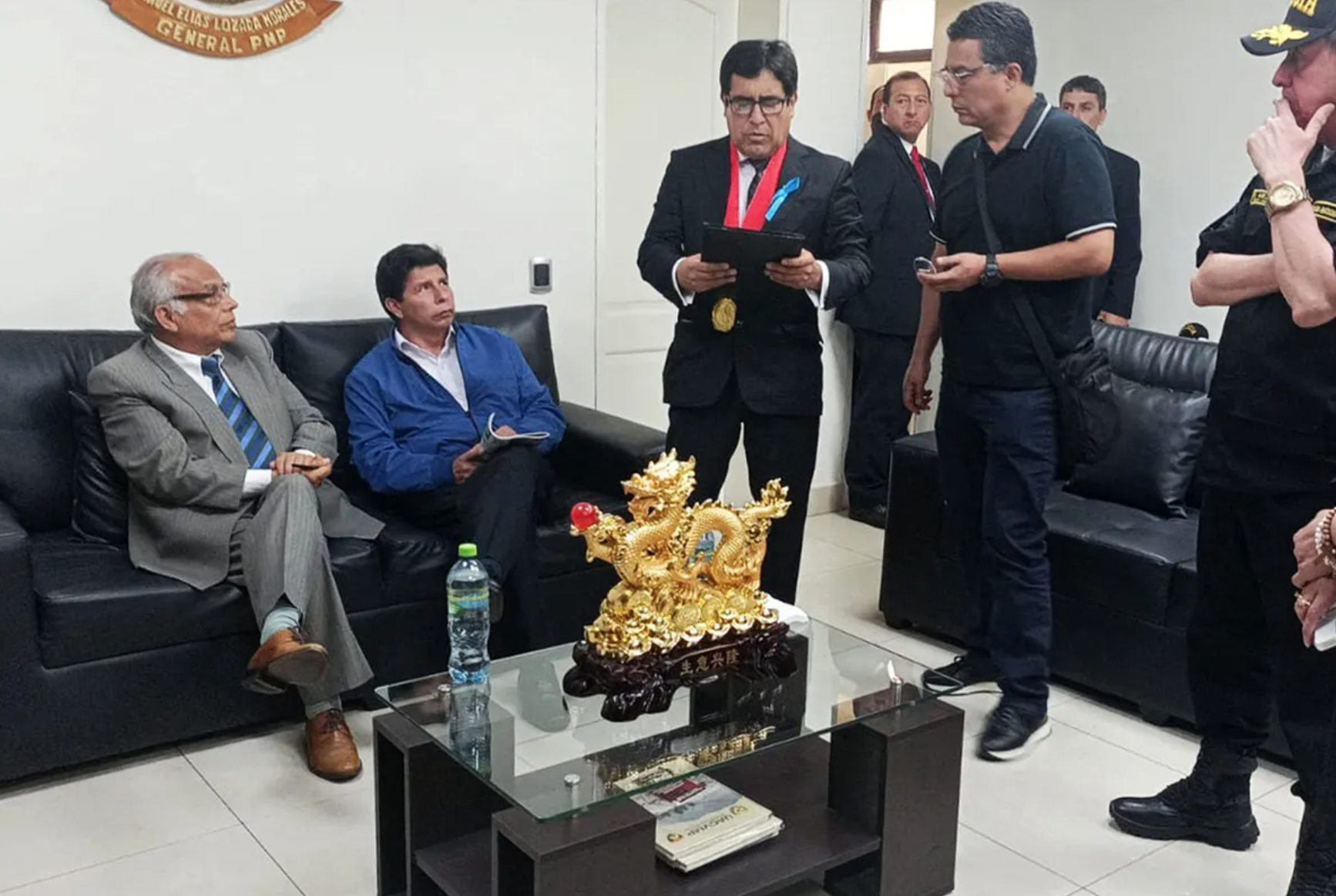In the last two decades, Peru has already had three presidents imprisoned: Alberto Fujimori, Ollanta Humala, and Pedro Pablo Kuczynski. Former president Alan Garcia committed suicide under the pressure of being accused of corruption, and Alejandro Toledo is on his way to be extradited from the United States. Pedro Castillo will soon be the fourth Peruvian president to be imprisoned and forced to answer to justice, as he has been impeached for sedition for having unconstitutionally decreed the shutdown of Congress.
During his government, the former president sought to broaden his support and tried to form a coalition government, costing him the loss of his political party, since Peru Libre, the left-wing Marxist party that catapulted him to power, decided to abandon it. The reasons were the rejection of the party’s desire to govern in minority and to impose officials unfit to hold public office.
Castillo, isolated, did not have the social capital to build bridges with other political actors and, therefore, to form a broader government. Without a majority in Parliament, he barely managed to gather some circumstantial allies to avoid his dismissal in Congress.
The now ex-president Castillo, unable to impose a government agenda or to give adequate political direction, ended up drowning under alleged corruption accusations, which, amplified by the media, led him to improvise. His closest personal circle acted disloyally and chose to denounce him as long as they did not obtain personal favors.
In the last week, Castillo won a significant victory when the Constitutional Court dismissed the charge of treason for statements in which he offered Bolivia access to the sea. However, this victory was overestimated by the former president, who naively believed that shutting down the Congress would lead public opinion to demonstrate in his favor in the streets. Even though on the day the Congress would discuss for the third time his impeachment the opposition did not have the 87 parliamentary votes to achieve it, the former president’s decision did not have any political backing. Even so, Castillo hastily decided to shut down the Congress.
Faced with this move, the House immediately met in session to declare the president morally unfit, and, a few hours after his ill-advised decision, Castillo was arrested and handed over to the Public Prosecutor’s Office. Within hours, Dina Boluarte was recognized by the Congress of the Republic as his successor. Boluarte, who comes from the ranks of Peru Libre, was finally expelled from her party after declaring that she did not embrace its ideology.
The truth is that Boluarte’s assumption of the Presidency is the sixth in six years. Boluarte does not have any formal support in Congress and, for that reason, she will try to constitute a plural cabinet. If she fails to do so, the chances are very high that she will be impeached.
This danger lies in particular with the far-right, which has several benches and a prominent role. These formations are willing to wear down the Peruvian institutional apparatus as long as there is no ideological harmony with the government. Since Dina Boluarte is a woman from the left, any different agenda would be reason enough to replace her.
There is evidence that the opposition – especially the far-right wing – acted disloyally and on unconstitutional grounds to dismiss former President Castillo. The fact is that the prerogatives of political control give visibility to their parliamentarians, who are little committed to the country’s urgent demands.
There is no doubt this record of Peru’s political system instability is based on the institutional design itself, which favors confrontation instead of cooperation. In fact, the exercise of power in the country is reduced to the presence of a president with many political resources in front of parliamentarians who, in order to become options of alternation, cannot appeal to any other strategy than confrontation, even being disloyal to the democratic regime, if necessary.
If Castillo had accepted the vacancy, perhaps he would have been politically strengthened. The Peruvian institutional design made Castillo opt for a mistaken departure from the current constitutionality. And that was a serious mistake.
With his decree, Castillo hoped to call for new parliamentary elections. However, there was no guarantee that a new congress would be favorable to him, since he had no party and did not represent a concrete ideological proposal. That is to say, it would have been the exercise of power without a clear purpose and without any concrete proposal for the segment of the electorate that put him on power and that demands so much social change.
What Pedro Castillo really did was to unite everyone against him and thus make any progressive movement in Peru impracticable.
*Translated from Spanish by Janaína Ruviaro da Silva











